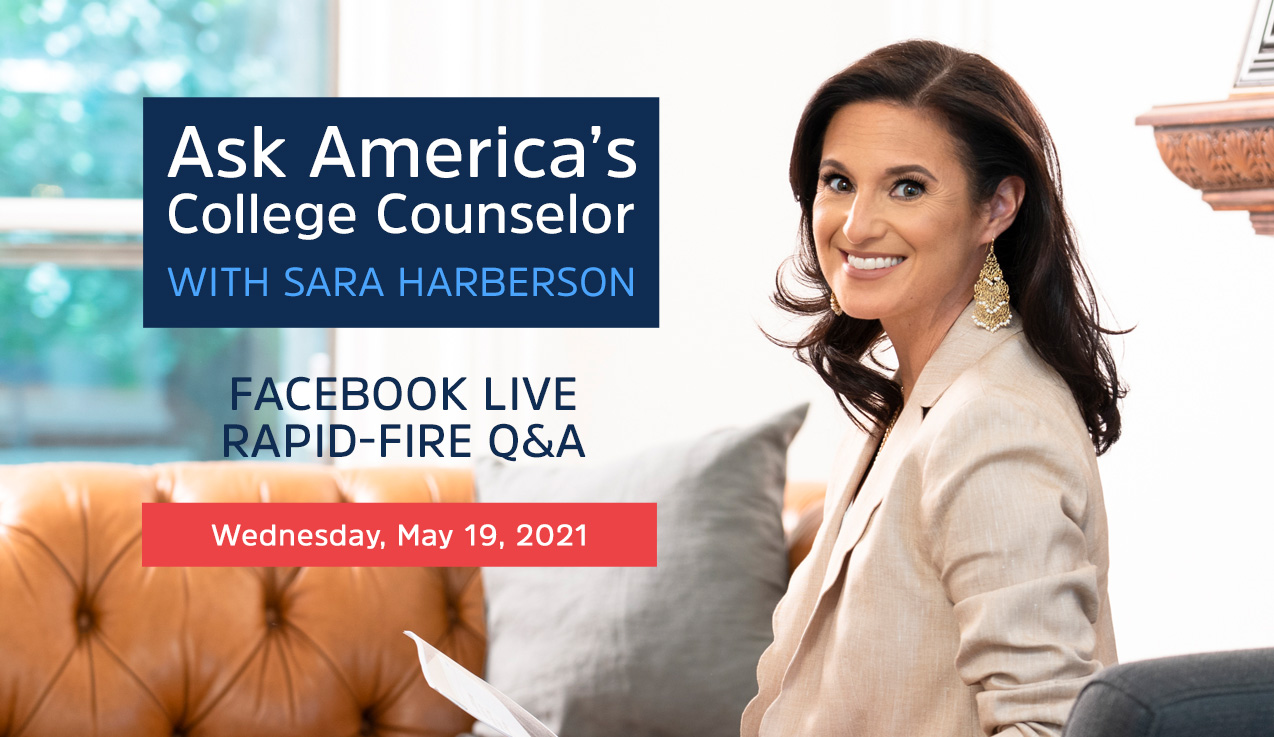Dear High School Counselors,
I know this has been a challenging year to counsel and guide high school students applying to college. I am so grateful for the work you do. I never see us competing in this industry. We are partners. We both want the very best for high school students.
Before you take a much needed break for summer, I wanted to see if you can spread the word with me to your administration and school boards about school policies that negatively impact students' admissions outcomes.
1. Ensuring test scores do not show up on a student's transcript.
The majority of colleges adopted a test-optional policy this year and many have already announced they are extending this policy. In order to ensure that students truly have the "option" to share their scores or not, let's eliminate test scores from the transcript. If they appear on the transcript, the student has no control over their scores. Even if a student applies test-optional, an admissions officer cannot "unsee" the scores on the transcript. It influences them and their evaluation of the student's application. With the rise of Score Choice, self-reporting scores, and test-optional policies, allowing the student to pick and choose which test scores each college receives will give them more power in the process. There are only a handful of colleges that require all scores these days. For the vast remainder of colleges, I want students to be able to decide which scores, if any, are sent.
2. Eliminating class rank.
Colleges don't need class rank to evaluate a student's application. While most high schools have eliminated class rank, there are still plenty across the country who insist on providing this information to colleges. For the handful of colleges (like the service academies) or scholarships that require class rank, the high school can have an internal ranking system to rely on in these rare cases. Class rank helps a student at the very top of the class, but that is about it. In fact, when I worked in the Undergraduate Admissions Office at the University of Pennsylvania, falling within the top 10% was not enough anymore. A student had to be #1 or close to it in their class to be competitive unless they were a recruited athlete or another prioritized applicant.
3. Removing all information from the transcript and school profile which provides information about where students fall in the class.
Many high schools that eliminate class rank still feel the need to provide information to colleges on the transcript or school profile like GPA bands, percentiles, decile rankings, or other data points like the "highest GPA in the class." But the point of eliminating class rank is to ensure that admissions officers give students a fair evaluation without relying on a data point that does not tell the full story. In fact, it can lead admissions officers to guess or estimate (accurately or inaccurately) where the student falls within the class. For example, many high schools provide decile rankings of their students on the transcript or school profile. A decile ranking is a form of class rank, but it is actually less accurate. The student who falls just outside the top decile or top 10% of their class has very little chance of gaining acceptance at a highly selective college. There are plenty of high schools across the country that do not rank students, provide any indication of where the students fall within the class, or even offer cumulative GPAs. Colleges will work with whatever you give them.
Related Reading:10 Things to Consider Before Meeting With Your School College Counselor
As I often say, my allegiance is to the students going through this process. I needed an advocate when I was in high school in the 1990s. Students need advocates more than ever now. You and I can work together to promote student-friendly policies both on the secondary school level and in higher education. We can ensure that the students we believe in so dearly will have a fair shake in a process that has been anything but fair for decades.
Sincerely,
Sara Harberson
Your Partner in Progress







.jpg)




